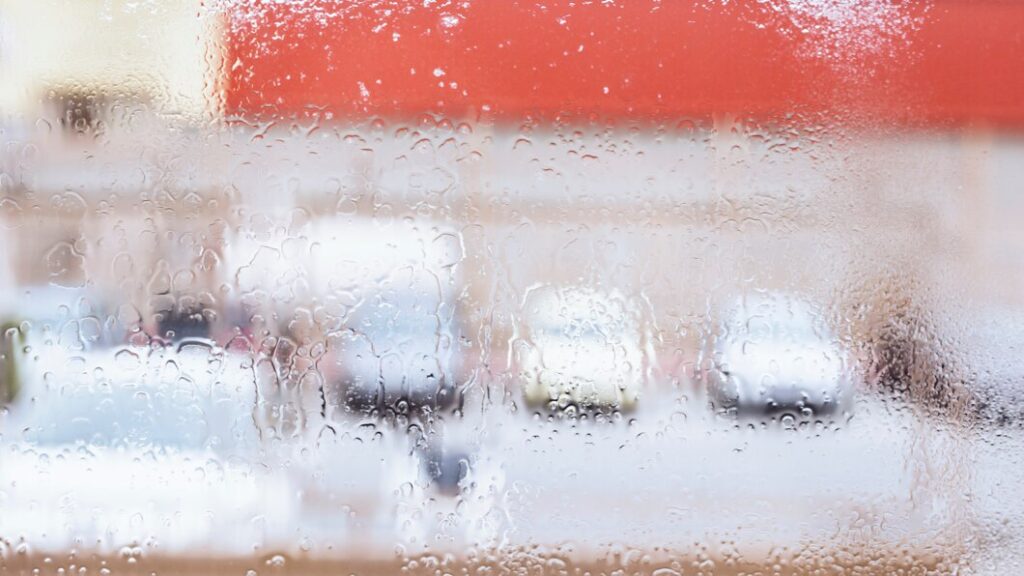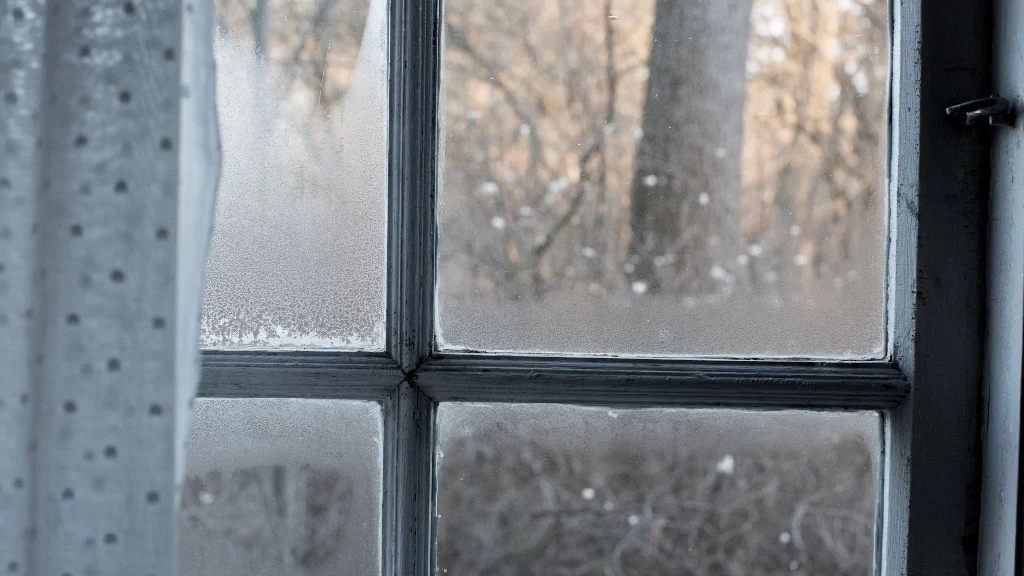Condensation is a natural phenomenon. It occurs when water vapors are turned into liquid state. Condensation can easily affect the windows due to several factors. One of the basic reasons is that when hot air collides with cold air condensation is formed on the window. This process is mainly formed in the winter season as the temperature inside of the window is quite hot whereas the outside temperature is extremely cold.
Condensation occurs due to lack of improper ventilation, high level of moisture and difference in the temperature of inside to outside. Condensation can cause damage to the windows in many ways such as it can damage the frame of the window, making it blur which can affect its visibility or a window may form a mold growth on its surface.
Reasons of condensation on windows
Following are the reasons which can cause condensation on windows.
Temperature Difference
The difference between the inside and outside of the window can cause condensation. In the winter season when the temperature inside is warm and outside is cold. When both the air collides with one another condensation is formed.
High Humidity level
When excess moisture is present inside the house condensation occurs. When someone cooks or takes a shower the water vapors to turn into moisture which can cause condensation and can affect the window of the house.
Poor Ventilation
When the airflow path is not properly designed so the level of moisture rises to maximum to form condensation. The basic reason for ventilation is that exhaust or ceiling are not used or the house is designed in such a way that has no space for air to flow freely.
Inefficient Windows
When cheap and inefficient windows are installed they can easily get condensation. You must replace the single glazed glass with a double-triple layer glass, which is thick in size and can easily resist the outside temperature with ease.
Anti-condensation windows
Tired of dealing with window condensation? Anti-condensation windows are the answer. They use special insulated glass, Low-E coatings, and triple glazing to keep your windows clear and free of moisture. These windows are a game-changer, saving energy, reducing condensation, and making your home more comfortable. If condensation is a problem, upgrading to anti-condensation windows is the best solution.
Indoor Plants
The plants which are placed inside the house release moisture and are responsible for the condensation process. The water which is feeded to plants on a daily basis allows the excess water to evaporate into free space to cause moisture.
Weather Conditions
Differences between inside and outside of the window may lead to condensation. The temperature inside the house is quite temperate by considering the temperature outside when both the temperatures strike with one another causing condensation.

Methods to prevent condensation on windows
There are several methods by which you can prevent condensation on windows to make them as new as they were before.
Control Indoor Humidity
You can easily avoid the condensation on your windows by using a humidifier which helps to reduce the moisture level. Also you can improve the ventilation system of the house by allocating maximum air flow inside the house to reduce condensation. If there are plants placed inside the house you can minimize the number of plants.
Improve Air Circulation
Another way to turn aside condensation is to improve air circulation in your house. This can be done by opening windows in humid temperature to allow fresh air to circulate along with ceiling fan which can reduce the moisture inside the house.
Increase Insulation
If the window of your house has single layer glass replace it with double or triple layered glass which increases its insulation and reduces the moisture level to avoid condensation on windows. Nowadays, UV (Ultraviolet) protection film can be also applied on window surfaces to knock off the condensation.
Use Window Treatments
Make sure that the curtain or blinds of the windows remain open during day time. If they are not opened the temperature of inside and outside disturbed the environment and can easily form condensation on windows.
Address Indoor Activities
The activities inside the house such as drying the clothes inside the house raises the moisture level. The clothes should be dried in open space. Another reason is that while cooking the steam from the kitchen section can make a large amount of moisture thus ventilated kitchen hoods should be installed to avoid condensation on windows
Utilize Anti-Condensation Products
There are large quantities of products available in the market that can minimize the condensation level. Anti-Condensation paint can be applied on walls and ceilings which can help to cut down the moisture to avoid condensation.
Maintain a Consistent Temperature
Modern houses consist of a central heating and cooling system which is a great cause of condensation. Maintain the temperature in such a way that it is not too hot nor too cold inside the house.
By carefully applying all the above mentioned procedures can stop the condensation permanently and bring back the window in its original form.
Our Recommendation
We recommend that if you are from Miami, Florida, where hurricanes are frequent, it’s wise to opt for hurricane impact windows instead of standard ones. Though impact windows aren’t entirely condensation-proof, they go a long way in reducing condensation by minimizing temperature transfer with insulated glass, boosting energy efficiency, and keeping the indoor environment consistent.
If you’re considering purchasing impact windows, Hurricane Window and Screen, the best company in Miami with over 40 years of installation experience and partnerships with top manufacturers, offers the most reliable option to protect your home. Don’t wait for the next hurricane—secure your home with our impact windows today.
FAQS
how to stop condensation on the inside of windows
To stop condensation on windows, improve ventilation, use dehumidifiers, seal window leaks, and maintain indoor humidity levels below 50% for a balanced environment.
Does condensation on windows mean poor insulation
Condensation on windows can mean your insulation isn’t great. It happens when warm, moist air hits cold windows. Better insulation and sealing can fix this.
What causes window condensation?
There are a number of factors which can cause window condensation like temperature difference, high humidity level or poor ventilation system.
Should I be worried about condensation on windows?
The condensation on the window will not only cause structural damage to the window frame as well as reduce the visibility of the window.
Does condensation on windows mean poor insulation?
Poor insulation is not the root cause of condensation on windows but other factors such as high humidity level and temperature difference plays a vital role in the condensation process.
What is the best way to stop condensation on windows?
There are several methods to stop condensation on windows. Use a humidifier, ceiling fans, open the curtains of the window, replace the window with double or triple glazed glass.
Conclusion
In order to knock off condensation on windows, you must minimize the indoor humidity level with the help of a humidifier and improve the ventilation system of your house. Make it sure to install proper insulation by upgrading to double/triple-pane glazed windows and avoid any sealing gaps. These steps will allow you to keep your windows clear and prevent moisture based issues.







